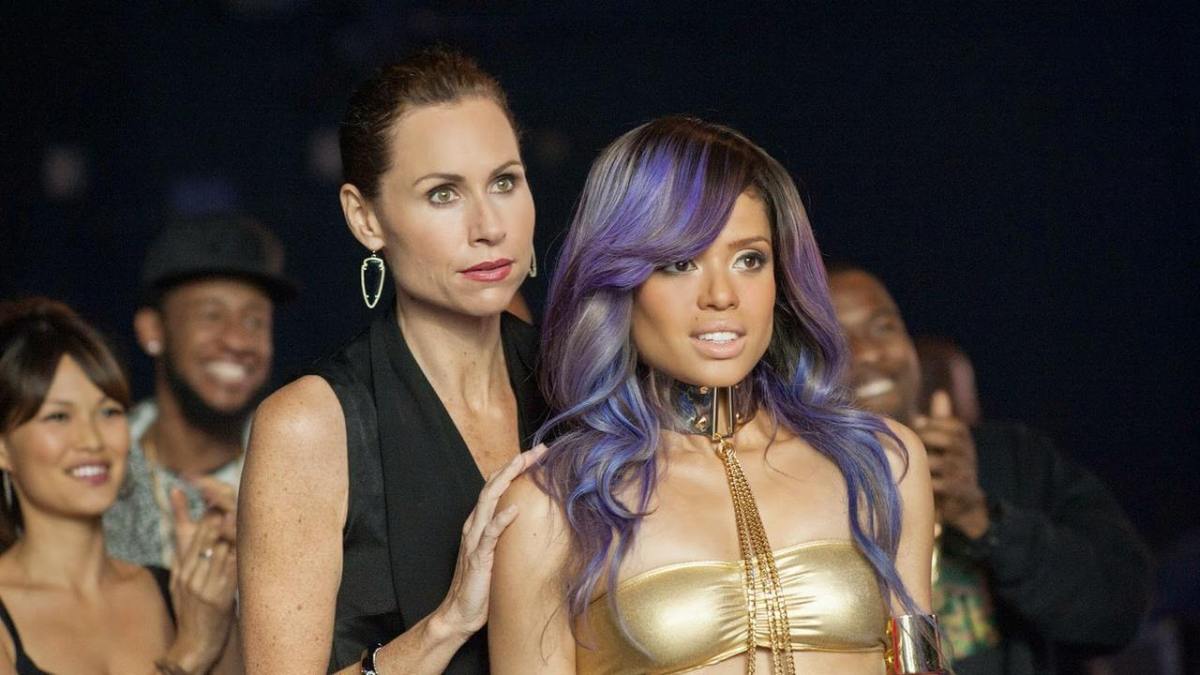Between her work on NBC’s “About a Boy,” now in its second season, and in the upcoming film “Beyond the Lights,” Minnie Driver is giving something of a master class in questionable parenting styles. But her kooky new-age Fiona on TV is a lot less dangerous to her child’s psyche than her aggressive stage mom/manager to a pop star on the verge of a nervous breakdown. It’s interesting to see how different the TV show “About a Boy” is from the film. The movie was much more of a dramedy. A lot of people are approaching the show like a romantic comedy, with a “will they or won’t they” aspect to Will and Fiona. Also, the film can have its wonderful resolution for this group of people, but you need to keep a show going. And how surprised were you by your younger co-stars sudden voice change?
Oh my God, it was so funny. We laughed, we did laugh, bless his heart. I mean, poor thing, he’s just growing up on camera. It’s not easy, it’s awful. But he’s so sweet, he’s a great boy. And in “Beyond the Lights,” you play a much different maternal figure, this cold, calculating stage mom driving her daughter to pop stardom and a meltdown. That same behavior might be seen differently if it were a father and son in a sports drama. Follow NedEhrbar on Twitter: @nedrick
I loved the movie a lot. I just watched it on the plane the other day. Toni Colette is so good in that film. But she just couldn’t be that dark on TV. It’s so beautiful how fragile she is psychologically and that whole notion of “no man is an island,” which it’s all built around. You have to have more than one person because of our fragility. But I take that sentiment into our show.
Definitely, definitely. Our show is a full-on comedy. With a heart!
Which is good. But anyone with an even basic understanding of satisfaction and psychology knows that if the “will they, won’t they” was they will, they’d then lose interest and be disheartened and sad because they don’t actually want that. What’s fun is to watch the cat chase after the mouse and then the mouse fight back. It’s not fun to see the cat and the mouse snuggled up in bed. That’s fun for a minute, then it’s boring and you have nowhere to go. So I would say the deliciousness is in the anticipation of how it would possibly shake down and watching them get there. But the notion of a really unusual family is what is interesting to me.
I think it’s tricky, but if anyone can do it Jason Katims can. And certainly where we’re at in this season, they have me falling in love and having this big relationship, and it’s super-awkward and dreadful and brings up all sorts of stuff for Will, all sorts of stuff for the kid. It’s really interesting. But you do have to keep creating conflict, that’s what makes it a comedy. And luckily they’re conflicted people who are messy and imperfect. That’s what you realize you need to tune in to. You want to see two characters coming at the same subject from completely different angles and they both need to be right and believe that they’re right — until the point that maybe one concedes a little bit or the other concedes a little bit. And if that’s the formula, then that’s all right because you can write around that really cleverly and brilliantly for a long time, I think. Hopefully. I’d like to be doing it for a long time.
Reality television has kind of defined a caricature of that archetype, but for me she’s got a bit of Svengali in her, a bit of the evil stepmother, a bit of the good mother. You take pieces of each of those and you weave it together. It was a really interesting playground. She encouraged her daughter to be the sexualized version — this cookie-cutter idea of what it is men want to have sex with, what women aspire to be, what’s on the cover of magazines.
You’re absolutely right. You frame it a different way and it becomes this story of courage and what it is to be a man. I think it is definitely a double standard. It’s the way that we look at things. We don’t examine what we’re teaching our kids in terms of stereotypes and also how to turn things into a positive.
Minnie Driver getting good at playing not very good mothers

Suzanne Tenner


















